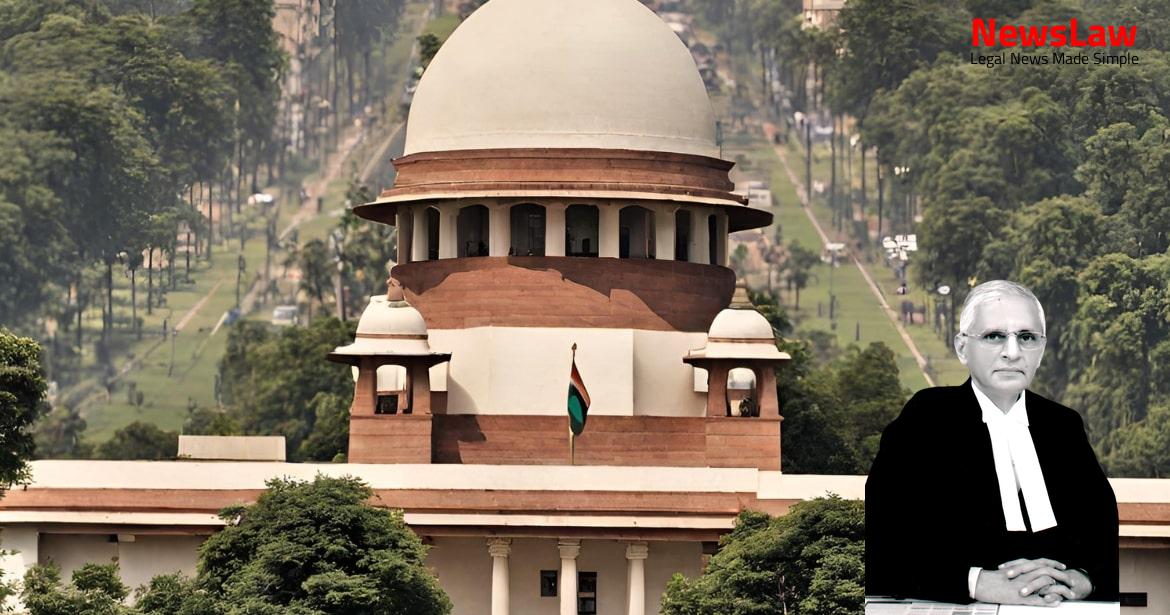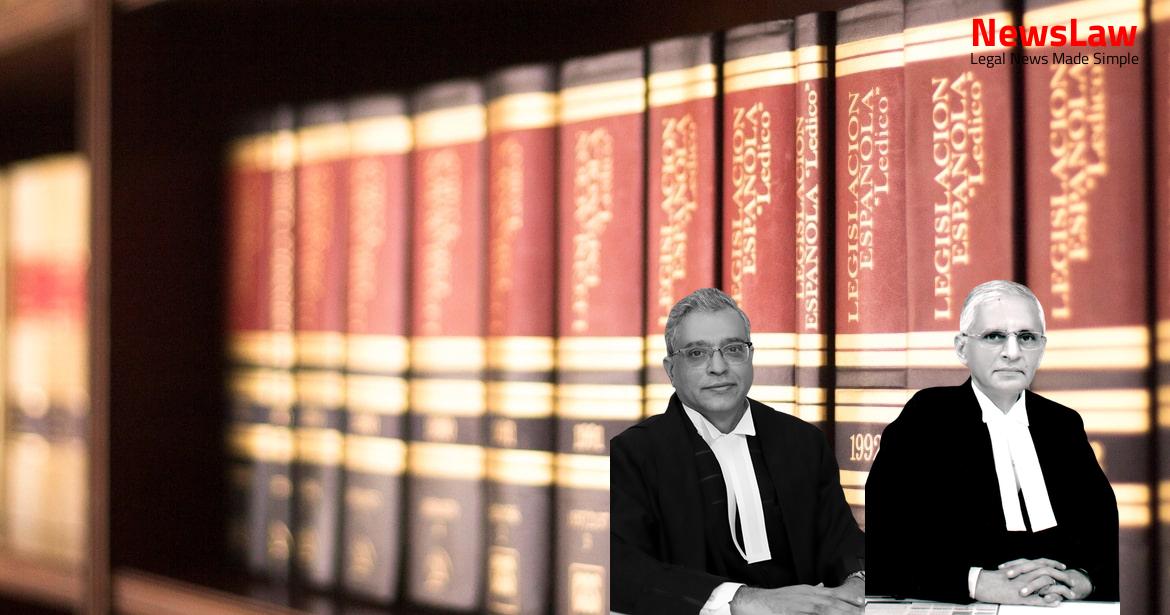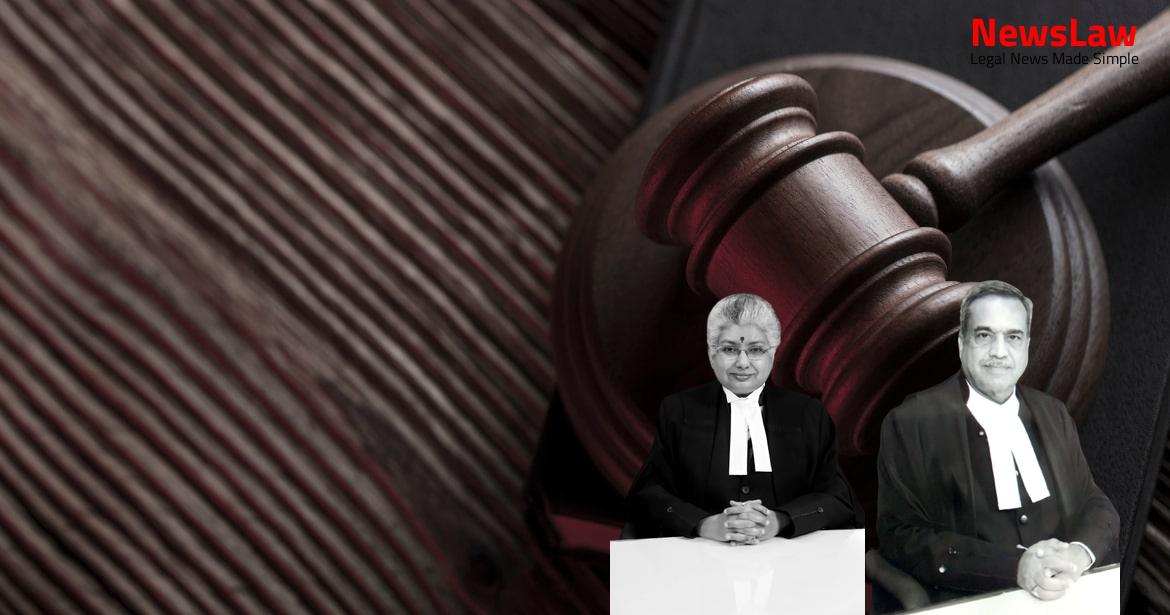In a recent legal case, the High Court’s handling of the quashing of FIRs raises important questions about the boundaries of its legal jurisdiction. The court’s analysis of Section 482 of the CrPC and its limitations sheds light on the complexities surrounding the exercise of judicial powers. This blog post will explore the nuances of the court’s legal reasoning and its implications on future legal proceedings.
Facts
- The eighth respondent allegedly helped draft false documents for the other accused.
- The fourth and fifth respondents are alleged to have demanded money from the appellant for a compromise.
- The sixth, seventh, and ninth respondents executed champertous agreements to finance civil litigation.
- An FIR was registered against the appellant and his family for various offences.
- Petitions under Section 482 of the CrPC were filed in the Gujarat High Court.
- Various powers of attorney and MoUs were executed with different respondents for considerations.
- Allegations of forgery and conspiracy in relation to the property’s ownership.
- Events leading to the FIR being filed and subsequent legal actions undertaken by the parties involved.
- The High Court quashed the FIR and charge-sheet against the fourth and fifth respondents due to a settlement between the parties.
- The investigation was directed to continue but charge-sheet to be filed only with the permission of the High Court.
- The High Court allowed the petitions for quashing the FIR, except for offenses punishable under Section 385 of the IPC against the fourth and fifth respondents.
- The investigation revealed a pre-planned criminal conspiracy related to land title disputes, false MoUs, and illegal land transfers.
- Accused not named in the FIR filed quashing petitions fearing inclusion in the charge-sheet, leading to questions about collusion with the police.
- High Court’s findings were solely based on the FIR contents without considering the final investigation report under Section 173 of the CrPC.
- The legal heirs of Shamjibhai were not pressured into compromising with the appellant.
- The High Court’s judgement emphasized that the allegations against the sixth to ninth respondents did not constitute the offenses mentioned in the FIR.
Also Read: Electoral Malpractices in Mayor Election
Arguments
- Mr. Nikhil Goel, learned counsel representing the appellant, argued against the prejudice highlighted regarding the earlier FIR against the appellant.
- The earlier FIR, which has been quashed, was registered at the DCB police station, leading to the appellant being directed to register the FIR at the Gandhigram police station.
- The interference by the High Court in the investigation against the eighth and ninth respondents was deemed premature and unwarranted.
- During oral arguments, it was revealed that a prior complaint had been lodged against the appellant, leading to the submission of a charge-sheet.
Also Read: Balancing Power and Transparency: Electoral Bonds Struck Down, Disclosure Mandated
Analysis
- The High Court quashed FIR I-124 of 2016 and other consequential proceedings relating to the accused under Section 482.
- An alleged offence of extortion under Section 385 of IPC was established against two respondents, permitting the investigation to proceed against them.
- The High Court transgressed its powers by restricting the police from submitting the charge-sheet before the Magistrate and perusing the draft charge-sheet contents.
- The High Court entertained petitions for quashing under Section 482 from persons not named in the FIR based on their appearance in the draft charge-sheet.
- The High Court failed to examine the allegation of criminal conspiracy against other accused parties in the extortion case.
- The police have the statutory right to investigate a cognizable offence under Sections 154 and 156 of the CrPC.
- The High Court must consider the material collected during the investigation as per the decision in Kaptan Singh v. The State of Uttar Pradesh.
- Reliance cannot be placed on a ‘draft charge-sheet’ which has not been presented before the Magistrate to quash criminal proceedings under Section 482.
- The well-settled test for quashing an FIR by the High Court under Section 482 was reiterated in Mahendra KC v. State of Karnataka.
- The High Court cannot review its earlier decision using inherent powers in view of Section 362 of the CrPC as observed in Simrikhia v. Dolley Mukherjee.
- In Pratibha v. Rameshwari Devi, it was held that the High Court cannot direct an investigating agency to submit a report or quash proceedings under Section 482 based on a report not submitted to the Magistrate.
- High Court transgressed the limitations on the exercise of its jurisdiction under Section 482 of the CrPC in quashing the FIR and all consequential proceedings
- Clear abuse of the process before the High Court by the other accused who allegedly executed champertous agreements or aided in their execution
- Other accused are alleged to have been party to the extortion of money from the appellant
Also Read: Recall of Resolution Plan Approval: Legal Analysis
Decision
- Setting aside the judgment and order of the High Court dated 8 January 2019
- Allowing the Criminal Appeals arising out of SLP (Crl) No 5736-39 of 2019
- Dismissing the Criminal Appeals arising out of SLP (Crl) Nos 5734 and 5735 of 2019
- Disposition of any pending application(s)
Case Title: JITUL JENTILAL KOTECHA Vs. THE STATE OF GUJARAT (2021 INSC 718)
Case Number: Crl.A. No.-001328-001333 / 2021



